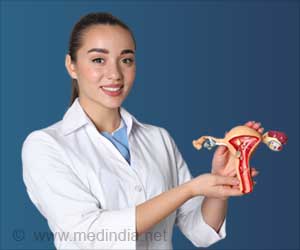Fertility, the ability to conceive, involves a symphony of factorshealthy sperm, viable eggs, unobstructed fallopian tubes, balanced hormones, and successful embryo implantation. Lifestyle, genetics,
, medical conditions, exercise, and diet contribute to this complex process. As we delve into the nutrition aspect, it becomes evident that what you eat matters in the realm of fertility.
, and lean proteins constitute an ideal fertility-friendly diet. Research indicates that adherence to such dietary recommendations correlates with a decreased need for fertility assistance. Both men and women benefit, with improved semen quality observed in men who prioritize a
.
Macronutrients (carbs, protein, fat) and micronutrients (vitamins and minerals) are crucial components of fertility support. Micronutrient deficiencies, particularly in vitamins B12, B6, and D, have been linked to infertility in women. This underscores the importance of nutrition in the journey to conception.
What are Fertility Supplements?
The exploration of fertility supplements is a topic of interest, yet a consensus on their effectiveness remains elusive. While certain supplements like CoQ10, folic acid, and vitamin D show promise, more research is needed to establish clear guidelines. The potential benefits of supplements may be more pronounced in addressing specific nutrient deficiencies hindering conception.
What Supplements to Take When You Are Trying to Get Pregnant?
Folic Acid (Vitamin B9):
Essential for preventing birth defects (1✔ ✔Trusted Source
Folic acid and the prevention of birth defects
Go to source
), recent studies suggest that higher doses (800 mcg) may enhance pregnancy rates and reduce the risk of anovulation (2✔ ✔Trusted Source
Folate intake and ovarian reserve among women attending a fertility center
Go to source
).
Advertisement
Other B Vitamins (B12 and B6):
Vital for maintaining safe levels of homocysteine, deficiency in these vitamins may be linked to miscarriage and embryo quality issues in infertility treatments (3✔ ✔Trusted Source
Female Fertility and the Nutritional Approach: The Most Essential Aspects
Go to source
READ RELATED: 10 Restaurant Chains That Serve The Best Salmon
).
Vitamin D:
While research results vary, some evidence suggests that vitamin D supplementation may improve fertility, particularly in women with polycystic ovary syndrome (PCOS) (4✔ ✔Trusted Source
Effects of Vitamin D on Fertility, Pregnancy and Polycystic Ovary Syndrome-A Review
Go to source
).
Fish Oil:
Rich in omega-3 fatty acids, fish oil supplements may play a role in reproductive health, with potential benefits observed in women undergoing assisted reproductive technology (5✔ ✔Trusted Source
Omega-3 fatty acid supplementation and fecundability
Go to source
).
Coenzyme Q10 (CoQ10):
Acting as an antioxidant, CoQ10 may reduce oxidative stress, potentially improving egg quality in women and sperm quality in men (6✔ ✔Trusted Source
Does Coenzyme Q10 Supplementation Improve Human Oocyte Quality?
Go to source
).
Selenium:
An essential trace mineral, selenium’s protective role in female fertility is evident, with increased antioxidant status and healthy follicle development (7✔ ✔Trusted Source
The role of selenium in human conception and pregnancy
Go to source
).
Prenatal Multivitamin:
While not directly increasing fertility, prenatal multivitamins replenish essential nutrients, correcting deficiencies that may impact the overall reproductive environment (8✔ ✔Trusted Source
Evidence based recommendations for an optimal prenatal supplement for women in the US: vitamins and related nutrients
Go to source
).
Impact of Vitamin Deficiencies on Fertility
Vitamin or mineral deficiencies can significantly impair fertility. A poor diet, impaired digestion, malabsorption, or chronic diseases may contribute to these deficiencies. Nutrient gaps, including deficiencies in vitamin D, iodine, B vitamins, calcium, iron, zinc, magnesium, selenium, and copper, can affect both male and female fertility.
Choosing the Right Fertility Supplement
Selecting the appropriate fertility supplement requires a thoughtful approach. While prenatal multivitamins with at least 400 mcg of folic acid are commonly recommended, individual health conditions and nutrient deficiencies may influence additional supplement choices. Checking for third-party testing agency seals on product labels ensures quality.
When to Consult a Healthcare Provider?
Embarking on the journey to conception warrants a healthcare provider’s guidance. Preconception consultations can identify potential health conditions impacting fertility, and necessary tests can be recommended. For women under 35, seeking guidance after one year of trying is advised, while women 35 and older should consider consultation after six months. Men with specific health histories should also seek advice.
In conclusion, the nexus between nutrition, supplements, and fertility unveils a nuanced landscape. Understanding the science behind fertility supplements, the impact of vitamin deficiencies, and the importance of personalized supplement choices empowers individuals on their fertility journey. Seek the guidance of a healthcare provider, and let the synergy of nutrition and supplements be your compass in crafting a fertility blueprint.
References :
- Folic acid and the prevention of birth defects – (https://pubmed.ncbi.nlm.nih.gov/8839920/)
- Folate intake and ovarian reserve among women attending a fertility center – (https://pubmed.ncbi.nlm.nih.gov/34809974/)
- Female Fertility and the Nutritional Approach: The Most Essential Aspects – (https://pubmed.ncbi.nlm.nih.gov/34139003/)
- Effects of Vitamin D on Fertility, Pregnancy and Polycystic Ovary Syndrome-A Review – (https://pubmed.ncbi.nlm.nih.gov/35458211/)
- Omega-3 fatty acid supplementation and fecundability – (https://pubmed.ncbi.nlm.nih.gov/35147198/)
- Does Coenzyme Q10 Supplementation Improve Human Oocyte Quality? – (https://pubmed.ncbi.nlm.nih.gov/34502447/)
- The role of selenium in human conception and pregnancy – (https://pubmed.ncbi.nlm.nih.gov/25175508/)
- Evidence based recommendations for an optimal prenatal supplement for women in the US: vitamins and related nutrients – (https://pubmed.ncbi.nlm.nih.gov/35818085/)
Source: Medindia









